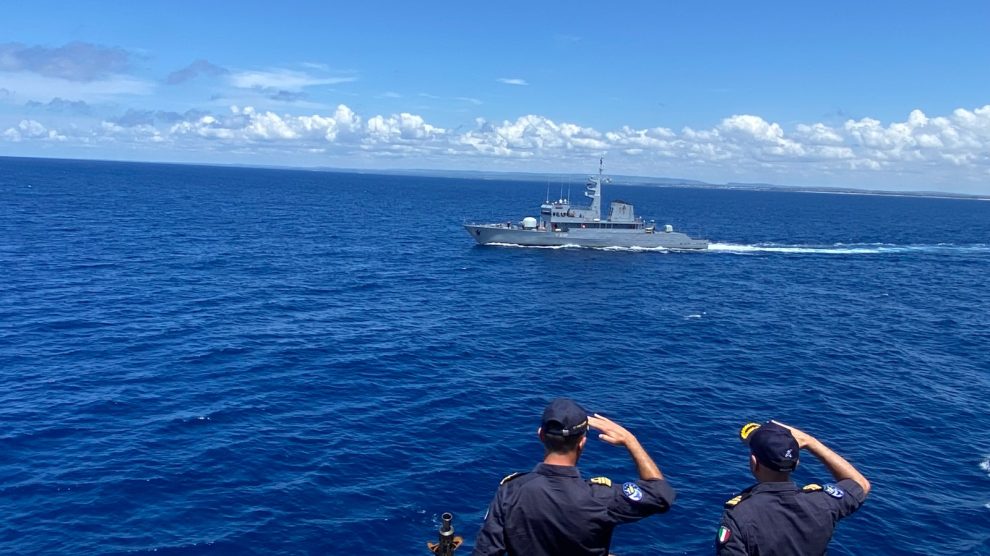Decoding the news. In these weeks, the Italian Navy frigate Luigi Rizzo has made strategic port calls in Mombasa, Kenya, and Maputo, Mozambique, under the EU’s Operation ATALANTA.
- The visits are part of a broader European effort to reinforce maritime security in the wider Indo-Mediterranean—an area once again under threat from piracy and geopolitical volatility.
- The Luigi Rizzo, a European Multi-Mission Frigate (FREMM) launched in 2017, currently serves as the flagship of EUNAVFOR ATALANTA under Italian Rear Admiral Davide Da Pozzo.
Take what you can… The return of piracy— emboldened by regional instability also linked to the chaotic fallout of Houthi actions in the Red Sea—is reshaping security calculations along global trade arteries.
- The EU’s maritime missions are becoming central tools for ensuring freedom of navigation and protecting commercial shipping.
…give nothing back. Operation ATALANTA is conducted in concert with EUNAVFOR ASPIDES, the EU’s defensive mission in the Red Sea, which is tasked with protecting merchant vessels and monitoring multi-domain threats.
- ATALANTA focuses on the Western Indian Ocean and the Horn of Africa, ensuring the safe flow of maritime commerce through patrols and capacity building.
- ASPIDES supports situational awareness, vessel escort, and protection from aerial and surface threats in the Red Sea and Gulf of Aden.
The strategic fabric. These efforts are increasingly part of a broader strategic fabric — one that includes rising cooperation with key regional players like India and the United Arab Emirates.
- Both countries have become critical economic and commercial partners for the EU and actively reinforce maritime security through their initiatives.
- Yesterday’s agreement between the Indian and UAE Coast Guards reflects a shared priority: interoperability and joint preparedness to secure vital sea lanes.
- As Europe advances initiatives like Global Gateway and Italy promotes its Piano Mattei for Africa, maritime security emerges as the backbone of connectivity. Without safe waters, no infrastructure corridor or trade project can thrive.
What we’re watching. The EU’s maritime posture in the Indo-Mediterranean isn’t just about countering piracy—it’s about anchoring economic and geopolitical ambitions in secure, navigable waters.
- As regional actors converge around this priority, coordination, interoperability, and strategic presence at sea are becoming the currency of influence.
- These cooperative efforts are part of more significant initiatives, such as the India-Middle East-Europe Economic Corridor (IMEC), aiming to bolster economic connectivity and infrastructure development across these regions.
- Ensuring maritime security is foundational to the success of such ambitious projects.
(Photo: X, @EUNAVFOR)





